Future of Content: ITV News’ head of newsgathering Andrew Dagnell on engaging audiences, reporting on the pandemic and preserving spirits in the office
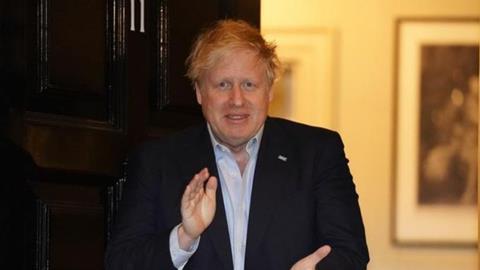
When the news is dominated by a single story, how do you ensure viewer engagement remains strong?
We always put people at the heart of all our storytelling at ITV News and the pandemic has turbo-charged that.
A lot of our editorial discussions are around how the pandemic is affecting people’s everyday lives. In our political coverage, we always want to reflect the impact decisions in Westminster are having on people in every corner of the country.
If there are changes to restrictions, we tell the story from the places that are hardest hit. When we’ve dealt with the economy, we haven’t just reported the facts and figures, but have focussed on those that have lost their jobs and businesses because of the downturn. On the NHS frontline we’ve reported on the faces of the pandemic – both the medics and patients.
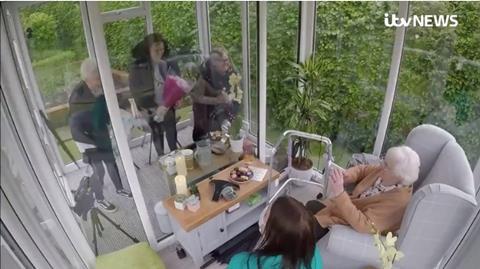
And on a daily basis we’ve tried to show the human stories at the heart of the pandemic – whether they be stories of victims, survivors or people who have been trying to help others get through the difficult times.
It might sound obvious, but we produce the news for our viewers. It’s crucial that they see their lives reflected in what we put on screen.
What has been your biggest challenge reporting the pandemic?
Almost overnight we had to adapt the way we work to make sure everyone was safe both in the newsroom and on the road. Above all else, everyone’s safety has been the most important thing to get right – and we’ve had to learn as we’ve gone along.
We went from having a newsroom full of people to a large chunk working from home. That meant bringing in technology, equipment, rosters and a whole way of working that was, to begin with, quite alien to us. And on the road, we had to make sure that teams were set up so they could shoot and edit stories in a Covid-secure environment – not only for our team but the people we’ve interviewed.
Everyone, without exception, responded with flexibility and team spirit to all the changes. That’s despite all of the added pressures everyone has faced in their home lives. One of the best things about the last year has been seeing how the whole team has rallied together to keep the news on air.
Have any of the changes that have been made to the way we work been positive?
Before the pandemic, there was a general feeling that you had to physically be in the office to be productive. The last few months have proven that’s not the case – some exceptional work has been done by people that have been working from home.
I definitely would like to see the buzz of the newsroom return when it’s safe, as I think it helps drive forward creativity and ideas, but we’ve learned that we can be flexible without diminishing the quality of our work.
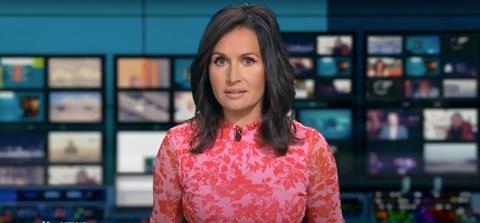
How have you managed to preserve a team spirit in the newsroom?
All our meetings are now on Microsoft Teams, including our ITV Evening News debriefs. That might not sound like a huge sea change, but it’s meant anyone from any part of our operation can be involved in any meeting. You no longer need to be physically present in the newsroom to be part of the conversations we are having about our output.
The management team also divided up the newsroom between us to give a regular phone call, just to check in, see how everyone’s done and have a chat.
How far did the coverage of the US election go to show that the reporting of international news stories was as strong as ever during the pandemic?
Given that we are in the middle of a global pandemic, it would have been easy to limit our ambitions for what we wanted to achieve with the US election, but our coverage was the best of what we do – fantastic eyewitness reporting and authoritative analysis – and it didn’t feel like we had to compromise on anything.
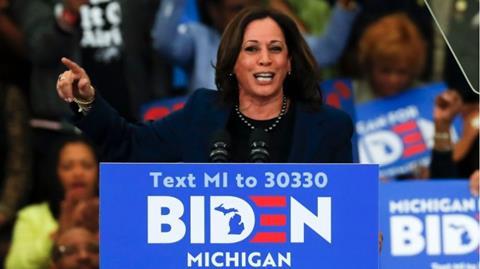
Everyone involved in our coverage did us proud – both in the US and in the office at Gray’s Inn Road.
But even before the US election, our foreign teams have done a superb job this year. The restrictions on travel and quarantine on return have obviously made it more challenging to deploy across the world as extensively as we normally would.
Our foreign desk has also been able to use their network of local journalists that they’ve built up over years. They have helped us to tell stories from across the globe, even if we haven’t been able to send teams to those countries.
What has been your stand-out moment of 2020?
The most shocking moment for me was when Boris Johnson was hospitalised. It felt like quite a turning point in the whole story. The person leading our country getting so seriously unwell made the virus a very tangible, real thing.
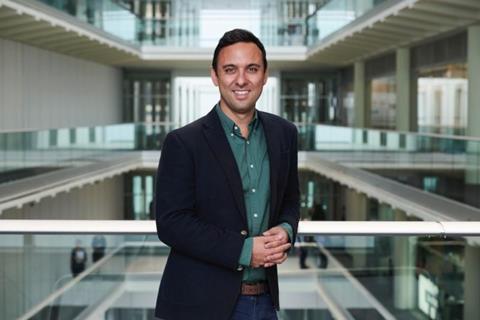
Where do you see the news agenda heading in the next year?
For a long time after the virus is no longer a daily threat to people’s lives, we are going to be reporting on the social and economic impact of the virus.
That to me is where the story goes next year – how do we as a country come back together when we are dealing with such seismic changes to millions of people’s lives and livelihoods? And let’s not forget the small matter of Brexit.
Andrew Dagnell is head of newsgathering at ITV News




![Coming in 2021 on channel 5 - Doctors at War_edited[1][1]](https://d11p0alxbet5ud.cloudfront.net/Pictures/100x67/3/5/5/1336355_comingin2021onchannel5doctorsatwar_edited11_16931.jpg)

